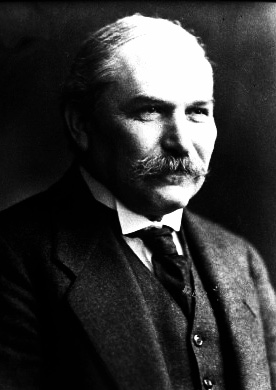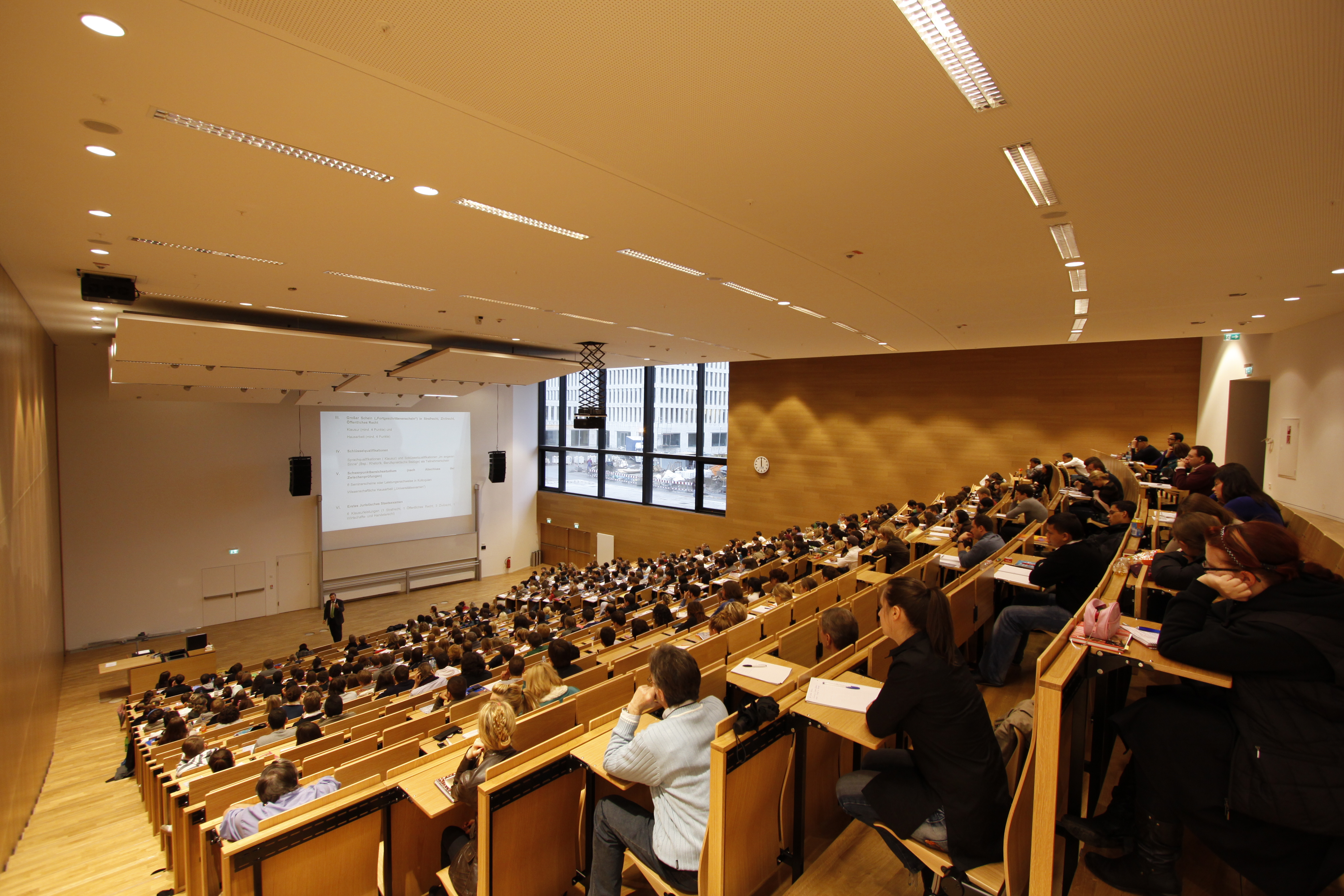|
Wolfgang Männel
Wolfgang Männel (October 18, 1937 in Falkenstein, Saxony – September 26, 2006) was a German professor of Business Administration. Academic contributions Männel was born as the son of the German entrepreneur Max Rudolf Männel and his wife Liska. He graduated at the University of Mannheim. In 1972, Männel became professor of Business Administration at the University of Frankfurt, in 1973 at the University of Dortmund and in 1982 at the University of Erlangen-Nuremberg. He influenced the German Business Administration a lot with works about cost accounting Cost accounting is defined by the Institute of Management Accountants as "a systematic set of procedures for recording and reporting measurements of the cost of manufacturing goods and performing services in the aggregate and in detail. It includ .... His literature is stilled used by almost every German student in this academic field. External links Prof. Wolfgang Männel(German) {{DEFAULTSORT:Mannel, Wolfgang 1 ... [...More Info...] [...Related Items...] OR: [Wikipedia] [Google] [Baidu] |
Falkenstein, Saxony
Falkenstein () is a town in the Vogtlandkreis district, in Saxony, Germany. It is situated 4 km southwest of Auerbach, and 17 km east of Plauen Plauen (; ; ) is a town in Saxony, Germany with a population of around 65,000. It is Saxony's 5th most populated city after Leipzig, Dresden, Chemnitz and Zwickau, the second-largest city of the Vogtland after Gera, as well as the largest cit .... Population Development Historical Population (ab 31 December 1960): : Datasource: Statistisches Landesamt Sachsen Sons and daughters of the city * Otto Lindner (1893–1983), writer * Gottfried Weimann (1907–1990), javelin thrower * Helmut Rauca (1908–1983), perpetrator of the Holocaust, born in the district of Trieb * Wolfgang Männel (1937–2006), economist * Ulrich Eisenfeld (born 1939), painter * Bernd Eisenfeld (1941–2010), historian and GDR opposition leader * Gabriele Eckart (born 1954), writer References Vogtlandkreis {{Vogtlandkreis-g ... [...More Info...] [...Related Items...] OR: [Wikipedia] [Google] [Baidu] |
University Of Mannheim
The University of Mannheim (German: ''Universität Mannheim''), abbreviated UMA, is a public university, public research university in Mannheim, Baden-Württemberg, Germany. Founded in 1967, the university has its origins in the ''Palatine Academy of Sciences'', which was established by Charles Theodore, Elector of Bavaria, Elector Carl Theodor at Mannheim Palace in 1763, as well as the ''Handelshochschule'' (Commercial College Mannheim), which was founded in 1907. The university offers Undergraduate education, undergraduate, Master's degree, graduate and Doctorate, doctoral programs in business administration, economics, law, social sciences, humanities, mathematics, computer science and information systems. The university's campus is located in the city center of Mannheim and its main campus is in the Mannheim Palace. In the academic year 2020/2021 the university had 11,640 full-time students, 1600 academic staff, with 194 professors, and a total income of around €121 mill ... [...More Info...] [...Related Items...] OR: [Wikipedia] [Google] [Baidu] |
Goethe University Frankfurt
Goethe University Frankfurt () is a public research university located in Frankfurt am Main, Germany. It was founded in 1914 as a citizens' university, which means it was founded and funded by the wealthy and active liberal citizenry of Frankfurt. The original name in German was Universität Frankfurt am Main (University of Frankfurt am Main). In 1932, the university's name was extended in honour of one of the most famous native sons of Frankfurt, the poet, philosopher and writer/dramatist Johann Wolfgang von Goethe. The university currently has around 48,000 students, distributed across four major campuses within the city. The university celebrated its 100th anniversary in 2014. The first female president of the university, Birgitta Wolff, was sworn into office in 2015, and was succeeded by Enrico Schleiff in 2021. 20 Nobel Prize winners have been affiliated with the university, including Max von Laue and Max Born. The university is also affiliated with 18 winners of the Gott ... [...More Info...] [...Related Items...] OR: [Wikipedia] [Google] [Baidu] |
University Of Dortmund
TU Dortmund University () is a technical university in Dortmund, North Rhine-Westphalia, Germany with over 35,000 students, and over 6,000 staff including 300 professors, offering around 80 Bachelor's and master's degree programs. It is situated in the Ruhr area, the fourth largest urban area in Europe. The university pioneered the Internet in Germany, and contributed to machine learning (in particular, to support-vector machines, and RapidMiner). History The University of Dortmund (German: ''Universität Dortmund'') was founded in 1968, during the decline of the coal and steel industry in the Ruhr region. Its establishment was seen as an important move in the economic change (''Strukturwandel'') from heavy industry to technology. The university's main areas of research are the natural sciences, engineering, pedagogy/teacher training in a wide spectrum of subjects, special education, and journalism. The University of Dortmund was originally designed to be a technical university ... [...More Info...] [...Related Items...] OR: [Wikipedia] [Google] [Baidu] |
University Of Erlangen-Nuremberg
A university () is an institution of tertiary education and research which awards academic degrees in several academic disciplines. ''University'' is derived from the Latin phrase , which roughly means "community of teachers and scholars". Universities typically offer both undergraduate and postgraduate programs. The first universities in Europe were established by Catholic monks. The University of Bologna (), Italy, which was founded in 1088, is the first university in the sense of: *being a high degree-awarding institute. *using the word (which was coined at its foundation). *having independence from the ecclesiastic schools and issuing secular as well as non-secular degrees (with teaching conducted by both clergy and non-clergy): grammar, rhetoric, logic, theology, canon law and notarial law.Hunt Janin: "The university in medieval life, 1179–1499", McFarland, 2008, , p. 55f.de Ridder-Symoens, Hilde''A History of the University in Europe: Volume 1, Universities in the Midd ... [...More Info...] [...Related Items...] OR: [Wikipedia] [Google] [Baidu] |
Cost Accounting
Cost accounting is defined by the Institute of Management Accountants as "a systematic set of procedures for recording and reporting measurements of the cost of manufacturing goods and performing services in the aggregate and in detail. It includes methods for recognizing, allocating, aggregating and reporting such costs and comparing them with standard costs". Often considered a subset or quantitative tool of Management accounting, managerial accounting, its end goal is to advise the management on how to optimize business practices and processes based on cost efficiency and capability. Cost accounting provides the detailed cost information that management needs to control current operations and plan for the future. Cost accounting information is also commonly used in financial accounting, but its primary function is for use by managers to facilitate their decision-making. Origins of cost accounting All types of businesses, whether manufacturing, trading or producing services, r ... [...More Info...] [...Related Items...] OR: [Wikipedia] [Google] [Baidu] |
1937 Births
Events January * January 1 – Anastasio Somoza García becomes President of Nicaragua. * January 5 – Water levels begin to rise in the Ohio River in the United States, leading to the Ohio River flood of 1937, which continues into February, leaving 1 million people homeless and 385 people dead. * January 15 – Spanish Civil War: The Second Battle of the Corunna Road ends inconclusively. * January 23 – Moscow Trials: Trial of the Anti-Soviet Trotskyist Center – In the Soviet Union 17 leading Communists go on trial, accused of participating in a plot led by Leon Trotsky to overthrow Joseph Stalin's regime, and assassinate its leaders. * January 30 – The Moscow Trial initiated on January 23 is concluded. Thirteen of the defendants are Capital punishment, sentenced to death (including Georgy Pyatakov, Nikolay Muralov and Leonid Serebryakov), while the rest, including Karl Radek and Grigory Sokolnikov are sent to Gulag, labor camps and later murdered. They were i ... [...More Info...] [...Related Items...] OR: [Wikipedia] [Google] [Baidu] |
2006 Deaths
This is a list of lists of deaths of notable people, organized by year. New deaths articles are added to their respective month (e.g., Deaths in ) and then linked below. 2025 2024 2023 2022 2021 2020 2019 2018 2017 2016 2015 2014 2013 2012 2011 2010 2009 2008 2007 2006 2005 2004 2003 2002 2001 2000 1999 1998 1997 1996 1995 1994 1993 1992 1991 1990 1989 1988 1987 1986 Earlier years ''Deaths in years earlier than this can usually be found in the main articles of the years.'' See also * Lists of deaths by day * Deaths by year (category) {{DEFAULTSORT:deaths by year ... [...More Info...] [...Related Items...] OR: [Wikipedia] [Google] [Baidu] |
People From Falkenstein, Saxony
The term "the people" refers to the public or common mass of people of a polity. As such it is a concept of human rights law, international law as well as constitutional law, particularly used for claims of popular sovereignty. In contrast, a people is any plurality of persons considered as a whole. Used in politics and law, the term "a people" refers to the collective or community of an ethnic group or nation. Concepts Legal Chapter One, Article One of the Charter of the United Nations states that "peoples" have the right to self-determination. Though the mere status as peoples and the right to self-determination, as for example in the case of Indigenous peoples (''peoples'', as in all groups of indigenous people, not merely all indigenous persons as in ''indigenous people''), does not automatically provide for independent sovereignty and therefore secession. Indeed, judge Ivor Jennings identified the inherent problems in the right of "peoples" to self-determination, as i ... [...More Info...] [...Related Items...] OR: [Wikipedia] [Google] [Baidu] |
University Of Mannheim Alumni
A university () is an institution of tertiary education and research which awards academic degrees in several academic disciplines. ''University'' is derived from the Latin phrase , which roughly means "community of teachers and scholars". Universities typically offer both undergraduate and postgraduate programs. The first universities in Europe were established by Catholic monks. The University of Bologna (), Italy, which was founded in 1088, is the first university in the sense of: *being a high degree-awarding institute. *using the word (which was coined at its foundation). *having independence from the ecclesiastic schools and issuing secular as well as non-secular degrees (with teaching conducted by both clergy and non-clergy): grammar, rhetoric, logic, theology, canon law and notarial law.Hunt Janin: "The university in medieval life, 1179–1499", McFarland, 2008, , p. 55f.de Ridder-Symoens, Hilde''A History of the University in Europe: Volume 1, Universities in the Middl ... [...More Info...] [...Related Items...] OR: [Wikipedia] [Google] [Baidu] |
Academic Staff Of Goethe University Frankfurt
An academy (Attic Greek: Ἀκαδήμεια; Koine Greek Ἀκαδημία) is an institution of tertiary education. The name traces back to Plato's school of philosophy, founded approximately 386 BC at Akademia, a sanctuary of Athena, the goddess of wisdom and skill, north of Athens, Greece. The Royal Spanish Academy defines academy as scientific, literary or artistic society established with public authority and as a teaching establishment, public or private, of a professional, artistic, technical or simply practical nature. Etymology The word comes from the ''Academy'' in ancient Greece, which derives from the Athenian hero, '' Akademos''. Outside the city walls of Athens, the gymnasium was made famous by Plato as a center of learning. The sacred space, dedicated to the goddess of wisdom, Athena, had formerly been an olive grove, hence the expression "the groves of Academe". In these gardens, the philosopher Plato conversed with followers. Plato developed his session ... [...More Info...] [...Related Items...] OR: [Wikipedia] [Google] [Baidu] |






